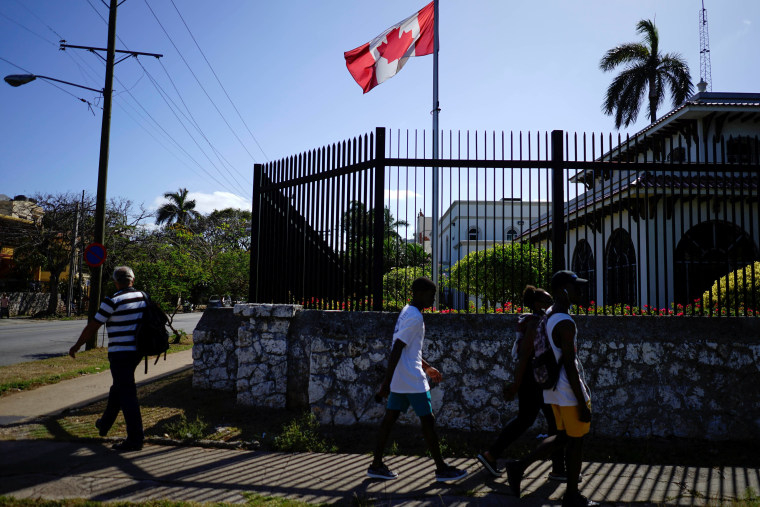Canadian diplomats stationed in Cuba will no longer be accompanied by their families amid a rash of persistent, unusual and unexplained health problems, the country’s foreign affairs department said Monday.
Canada’s embassy will now be designated an “unaccompanied post,” according to a statement from Canadian officials.
The symptoms, which include dizziness, headaches and an inability to concentrate, also struck 24 Americans affiliated with the embassy in Havana, prompting the State Department to recall all non-emergency personnel in September.
Eight Canadians received medical treatment after reporting symptoms last year. Three families returned home.
In the statement, Canadian officials said that while there had been no new cases, health problems have continued among families who left Cuba.
“In some cases the symptoms have appeared to lessen in intensity, before reasserting themselves,” the statement said.
Medical researchers at the University of Pennsylvania found that the problems could add up to a new kind of “acquired” brain injury, the officials said, adding that more research was needed.
State Department spokeswoman Heather Nauert said last month that it was still unclear who or what was behind the ailments.
“The investigation continues,” she said. “It’s not something that we’re giving up on.”
Canadian officials said Monday that an environmental assessment of diplomatic quarters revealed no clues. U.S. officials have theorized that a sonic weapon is to blame, and Rex Tillerson, then the secretary of state, attributed the symptoms to “health attacks” by the Cuban government. Cuban officials, meanwhile, have welcomed FBI investigators and called such theories “completely false.”
In a technical report published last month, computer scientists at the University of Michigan found that the problems may have been caused by two eavesdropping devices — and the potentially harmful ultrasonic distortion they produce.
“While our experiments do not eliminate the possibility of malicious intent to harm diplomats, our experiments do show that whoever caused the sensations may have had no intent for harm,” they wrote.
